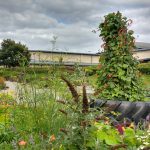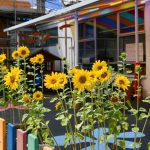Forest School – an approach to outdoor learning in schools and nurseries.
Forest School
Forest school (FS) is an inspiring process, a specialised approach to outdoor learning that aims to develop confidence and self esteem through hands-on learning in woodland environments.
It has become widely used in a short space of time across the UK. It’s roots lie in early years work, Woodcraft Folk, Scouts, Scandinavian education and related to other approaches such as Reggio Emilio.
Forest School is not a wording that should be applied to all learning outdoors. As an example, Forest Kindergarten is not related to Forest Schools.
Read on for advice and views on running Forest School in your setting, including alternatives to becoming a lead in Outdoor Learning and Play in your school.

If you would like to find out more about training opportunities in outdoor learning, Forest Kindergarten and more, please follow the link below.
The Forest School approach
Forest School has six key principles which ensure this approach is shared and used appropriately. These have been agreed by the Forest School community and are shared across the Forest School Association network of trainers.
It is a long-term process of regular sessions, rather than a one-off or infrequent visits; the cycle of planning, observation, adaptation and review.
It takes place in a woodland or natural environment to support the development of a relationship between the learner and the natural world.
It uses a range of learner-centred processes to create a community for being, development and learning.
It aims to promote the holistic development of all those involved, fostering resilient, confident, independent and creative learners.
It offers learners the opportunity to take supported risks appropriate to the environment and to themselves.
It is run by qualified Forest School practitioners who continuously maintain and develop their professional practice.
However, Forest School can be a mis-used phrase. To that end you can find a list of common myths and our reasoning about them below.
Forest school is just another word for outdoor learning. No, it is a very specific approach and has clear outcomes that are not curricular-led. Whereas, outdoor learning is a broad area of work, encompassing anything that happens outside of the school buildings.
You have to be Forest School qualified to get outdoors. No, using school grounds, local greenspace and more is ‘routine and expected’ and requires no formal training or qualification. However, you do need to work to a risk assessment (or risk benefit assessment) and you should be competent – we would view most teachers and educators as competent. There are more challenging activities, such as fires and tool use or specific adventure activities such as climbing, canoeing or hillwalking for which we (and authorities) expect evidence of a higher level of competence from the adult facilitators.
There is a ‘best’ outdoor learning approach. No, while a transformative tool for specific outcomes, Forest School is just one of many tools practitioners can use when learning outdoors. It is good to have a range of tools and approaches available and be able to select the best one. Forest School also has some shortcomings in a school environment, such as group sizes being less than a full class, the time commitment to train staff and deliver, and the lack of pre-planned curricular outcomes.
You have to be a Forest School Level 3 leader (FS L3) to use tools or fire with pupils. However, you do need to demonstrate confidence, competence and work to a suitable risk assessment (or risk benefit assessment). There are multiple ways of doing this, including our LtL Introducing fire lighting and woodland activities, FOLA courses, Forest Kindergarten, Woodland Leader, Food Hygiene Outdoors and more. FS L3 can be a good way of demonstrating competence, but it is a costly and time consuming route to achieve this.
You can use Forest School to deliver a maths lesson. By the child and environmental-led nature of the approach, you should not be starting off with specific curricular outcomes in mind. If a group decides to problem-solve a maths issue, such as ‘how tall is that tree?’ then it can meet curricular outcomes. However, in the Forest School approach, you would not plan for this.
Forest school is a ‘badge’ of achievement. No, it is about the process and the individual learning outcomes. Pupils do not receive achievement badges or certificates. However, teachers and educators can assess their development and achievements.
You have to be a Forest School certified leader to access woodland or forests. No, just as you would not be a certified ‘beach leader’, ‘park leader’ or ‘church for the end of term service leader’, you don’t need to be qualified to visit a woodland space with pupils.
The FS L3 qualification is the most cost-effective way of embedding use of the outdoors. The time and costs of training and certifying at FS L 3 are significant. Due to the small group sizes and need for multiple staff to hold Forest School certifications, the delivery costs can be high. In comparison, LtL can provide whole-school training across a number of sessions for the cost approximately equivalent to FS L3.
Is it for me?
Forest School is a powerful and proven tool for use as part of education. We know many across the UK who use this approach to great success in many ways – and have Care Inspectorate, Ofsted or HMIE inspections to confirm this. If you feel that Forest School is the right path for you, we suggest you get in touch with the Forest School Association – click here.
We would suggest that for most teachers there are alternatives, many of which are more appropriate. In our view all outdoor learning is good, and finding the approach that best suits your learners, school or nursery ethos is most important.
LtL offer a variety of curricular led course in outdoor learning, including LtL Practitioner in Outdoor Learning and Play and Forest Kindergarten Training. We also offer courses on play based learning – transforming break time at school into positive, child led and teacher-free time for health and wellbeing, social development and learning. You can also train in outdoor learning and play online, visit our elearning for outdoor learning and play website.
We also offer advice on how to maximise the use of school grounds and local greenspace for learning. This keeps the costs for travel and time down and allows whole class curricular learning to go on.
Finally, we have a range of lesson ideas and publications that can support your outdoor learning.






